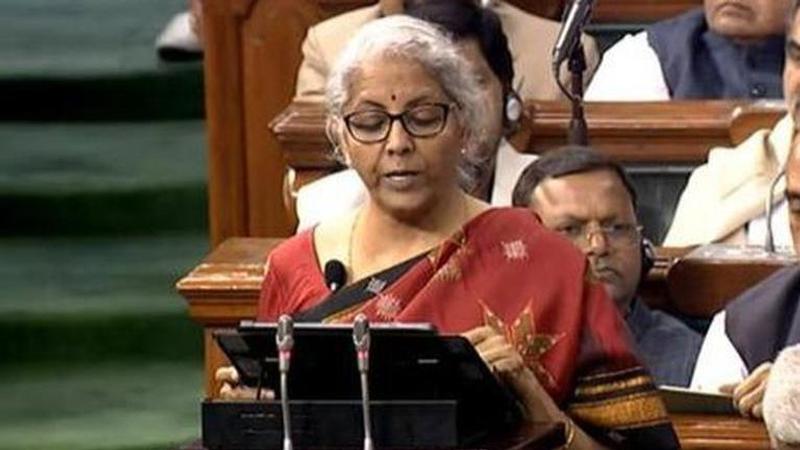Published 12:53 IST, February 1st 2023
Explained: What are the relief on taxes announced by Modi govt in 'Amrit Kaal budget'
In the first Budget of Amritkal, Union Finance Minister Nirmala Sitharam made five major announcements with regard to the Personal Income Tax

In the first Budget of Amrit kaal, Union Finance Minister Nirmala Sitharaman made five major announcements with regards to the Personal Income Tax. Sitharaman announced that new tax regime, introduced by the Finance Act 2020, is now proposed to be the default regime. However, anyone not willing to be taxed under this new regime can opt to be taxed under the old regime.
Finance Minister Sitharaman also announced the extension of income tax rebate on income up to Rs 7 lakh.
“Currently, those with an income of Rs 5 lakh do not pay any income tax and I propose to increase the rebate limit to Rs 7 lakh in the new tax regime,” the Finance Minister said while presenting the Budget.
New tax slabs
Moreover, Finance Minister Sitharaman proposed to change the tax structure in the new income tax regime introduced in 2020 by reducing the number of slabs to 5. The new tax rates are 0 to Rs 3 lakhs - nil, Rs 3 to 6 lakhs - 5%, Rs 6 to 9 Lakhs - 10%, Rs 9 to 12 Lakhs - 15%, Rs 12 to 15 Lakhs - 20% and above 15 Lakhs - 30%.
Talking about the highest tax rate which is at 42.74 per cent in India, Sitharaman said," This is among the highest in the world. I propose to reduce the highest surcharge rate from 37 per cent to 25 per cent in the new tax regime. This would result in reduction of the maximum tax rate to 39 per cent."
Direct Taxes
Calling MSMEs the 'growth engine', the Finance Minister announced that Micro enterprises with turnover up to ` 2 crore and certain professionals with turnover of up to ` 50 lakh can avail the benefit of presumptive taxation. She further announced proposal to provide enhanced limits of ` 3 crore and ` 75 lakh respectively, to the tax payers whose cash receipts are no more than 5 per cent.
For co-operatives, Sitharaman announced that those new bodies, which commence manufacturing activities till March 31, 2024 shall get the benefit of a lower tax rate of 15 per cent, as is presently available to new manufacturing companies.
For start-ups, the Finance Minister proposed to extend the date of incorporation for income tax benefits from March 31, 2023 to March 31, 2024, Sitharaman further proposed to provide the benefit of carry forward of losses on change of shareholding of start-ups from seven years of incorporation to ten years.
Indirect Taxes
The Finance Minister's indirect tax proposals aimed to 'promote exports, boost domestic manufacturing, enhance domestic value addition, encourage green energy and mobility'.
"I propose to reduce the number of basic customs duty rates on goods, other than textiles and agriculture, from 21 to 13. As a result, there are minor changes in the basic custom duties, cesses and surcharges on some items including toys," Sitharaman said.
📡LIVE Now
— PIB India (@PIB_India) February 1, 2023
Union Finance Minister @nsitharaman rises to present #Budget2023 in Parliament
Stay tuned for the highlights and watch the #AmritKaalBudget Speech here https://t.co/4YDqu2fOHu
Updated 13:46 IST, February 1st 2023




